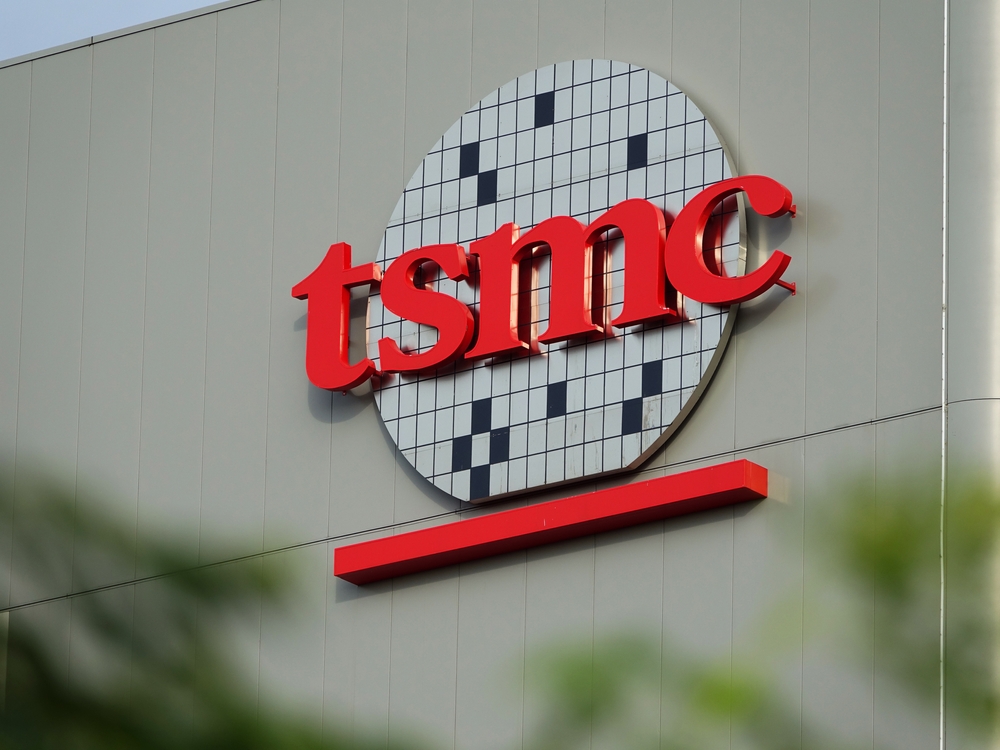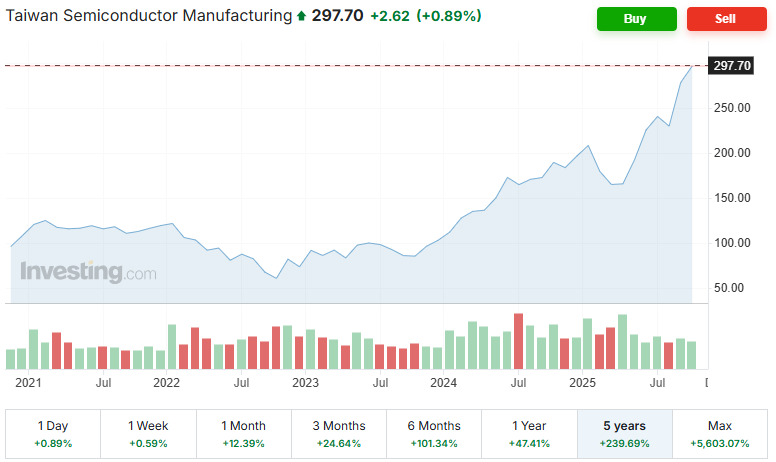

Strong demand for chips brought TSMC record revenue growth in double digits
Taiwan Semiconductor Manufacturing Company (TSMC) has once again proven to the tech world that it ranks among the industry leaders. The third quarter brought the company an increase in sales that surpassed even the already record-breaking results from the previous quarter. It owes this success to advanced artificial intelligence (AI) chips, which have long been appreciated by its customers such as Nvidia and AMD. The ongoing concern remains the trade relations between the world’s largest economies, which, according to TSMC, have had no impact on the company.
Strong supply
In its presentation of results for the third quarter of 2025 (October 16, 2025), TSMC stated that the main drivers were once again advanced chips with smaller dimensions—specifically, 3 to 7 nanometers (nm). Their size makes them more efficient in high-performance transistors, which boosted demand especially in the AI sector, data centers, and mobile applications. The high-performance computing segment accounted for more than half of total revenue (57%). On closer inspection, advanced chips made up as much as 74% of total sales, followed by 5nm and 3nm chips (37% and 23%, respectively) and 7nm chips (14%).
Positive outlook
Overall, the Taiwanese company achieved historically high results while exceeding analysts’ expectations. Its consolidated revenue climbed to TWD 989.92 billion (USD 33.1 billion), representing a year-over-year increase of more than 30%. Net profit reached a record of more than TWD 452 billion (USD 13.7 billion), which was almost a 40% annual increase and nearly 14% higher than in the previous quarter.* Analysts from LSEG had expected revenue of TWD 977 billion with profit significantly lower at TWD 417 billion. According to CNBC, even the company’s CEO, C.C. Wei, could not hide his excitement about the company’s performance. He is pleased that the adoption of artificial intelligence is becoming increasingly widespread among consumers and believes that this trend will continue to strengthen and drive better results. The financial report anticipates that the final quarter will bring revenue in the range of USD 32.2 to 33.4 billion.[1]
Trade war doesn’t concern them?
Relations between the U.S. and China remain a key factor in the company’s outlook. Media reports indicated that Beijing plans to restrict the export of rare earth elements, along with additional controls over the semiconductor sector. However, according to Reuters, the Ministry of Economy stated that the restricted elements are not critical to semiconductor production. Nevertheless, U.S. President Donald Trump responded by warning of potential new 100% tariffs on Chinese imports, though according to Yahoo Finance, he also admitted that the current trade war is unsustainable. What happens next will likely become clearer after Trump and Chinese President Xi Jinping meet later this month. Despite restrictions against China, including those affecting chip exports, TSMC does not expect any impact on its business. As reported by Investing, with continued confidence from its clients, the company anticipates a 40% growth rate even if the Chinese market remains isolated.
Slight correction after the record
After the earnings report was released, the company’s shares fell on the New York Stock Exchange, dropping by a combined 3.2% on October 16 and 17, 2025, to USD 295. The beginning of the following week brought some recovery, with the share price surpassing USD 300, but it closed the trading day at USD 297 (as of October 20, 2025). TSMC shares had reached an all-time high just a few days earlier, on October 15, 2025, at USD 305. In the short term, this represented gains in the double-digit range, while over the year, the stock rose by more than 47%. Over a five-year period, performance reached a robust 239%.*

Source: Investing.com*
Blackwell in production
TSMC continues to strengthen its client relationships through its manufacturing plant in Arizona. This specifically involves collaboration with Nvidia, which unveiled the first high-performance Blackwell chip produced entirely in the United States. The facility, located in Phoenix, will focus on manufacturing various types of semiconductors to be used—unsurprisingly—in AI applications, as well as in telecommunications and computing. Beyond strengthening corporate partnerships, this collaboration represents an important step toward bringing advanced chip manufacturing to U.S. soil—something President Trump has strongly advocated for.
* Past performance is not indicative of future results.
[1] Forward-looking statements are based on assumptions and current expectations that may be inaccurate, or on the current economic environment, which is subject to change. Such statements are not guarantees of future performance. They involve risks and other uncertainties that are difficult to predict. Actual results may differ materially from those expressed or implied in any forward-looking statements.

